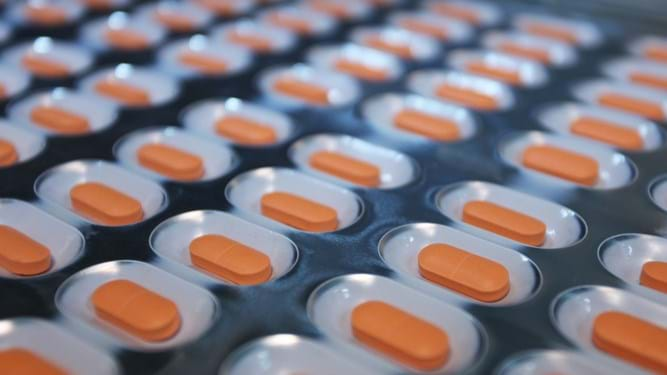Scottish researchers explore novel PET recycling approach to produce pharmaceuticals

IN WHAT they believe to be a world first, Scottish researchers are exploring whether it is feasible to use plastic waste from industry to manufacture pharmaceuticals for neurological diseases.
The team says that a majority of pharmaceuticals are currently petrochemical based, and most are manufactured overseas. Its project offers the chance to produce medicines more sustainably.
The researchers will investigate whether they can break down polyethylene terephthalate (PET) using genetically modified bacteria and enzymes to extract core chemical components. The hope is that these can be converted to valuable pharmaceutical products for treating a range of life-limiting conditions such as brain disorders.
They will also explore the various routes for producing other forms of medication from PET, which they say supports the UK’s 2021 Life Sciences Vision. The vision sets out a plan to stimulate a thriving UK life sciences sector and focuses on addressing some of the UK’s most significant healthcare challenges.
According to the team, this is the first-time research has explored using PET, commonly used to manufacture packaging for food and drinks, as a starting material for making medicines. The PET will be supplied by packaging manufacturer API Foilmakers. The Livingston-based company produces plastic-backed foil reaching a length of 18 km each month, creating up to 100 t of PET waste.
Simon Rathbone, development manager at project leader Impact Solutions, said that the group is currently “working towards a small-scale proof of concept, laying the foundation for the future commercialisation of this technology”. Impact Solutions is an independent laboratory that supports industry to test and develop new materials, products, and services.
Also participating in the work are biotechnology researchers at the University of Edinburgh, UK, and Industrial Biotechnology Innovation Centre (IBioIC), which supports companies in bringing new biotechnology processes and products to the global market.
Stephen Wallace, senior lecturer in biotechnology at the university, said: “There’s potential for this to be a turning point for the pharmaceutical sector. While this project is focused on a specific type of plastic waste from the foil rolls, it’s a platform technology that could in the future be applied to alternative forms of waste PET from other sectors – if we get the foundations right. We’ve already had some promising talks with big pharma companies keen to explore this new approach.”
Liz Fletcher, director of business engagement at IBioIC, said: “The exploration of PET plastics as a feed source for manufacturing medication represents a significant leap forward in bio-based medicines. The research also marks an important step in Scotland’s efforts to reach net zero, using enzymes and engineered biology for sustainable manufacturing. We look forward to witnessing the positive impact of this project and are pleased to continue our support for a company providing valuable alternatives for industrial plastic waste.”
Impact Solutions is also exploring other methods for extracting high value chemicals from waste and byproducts. It previously collaborated with a team including the University of Edinburgh, IBioIC, and seafood supplier Farme Salmon to produce adipic acid, a key component used to produce nylon, using byproducts from the fishing process.
Recent Editions
Catch up on the latest news, views and jobs from The Chemical Engineer. Below are the four latest issues. View a wider selection of the archive from within the Magazine section of this site.




